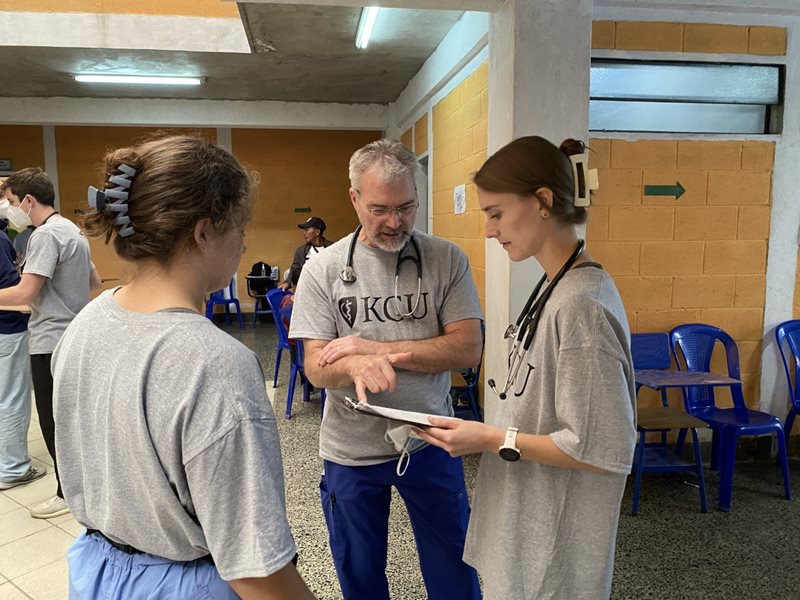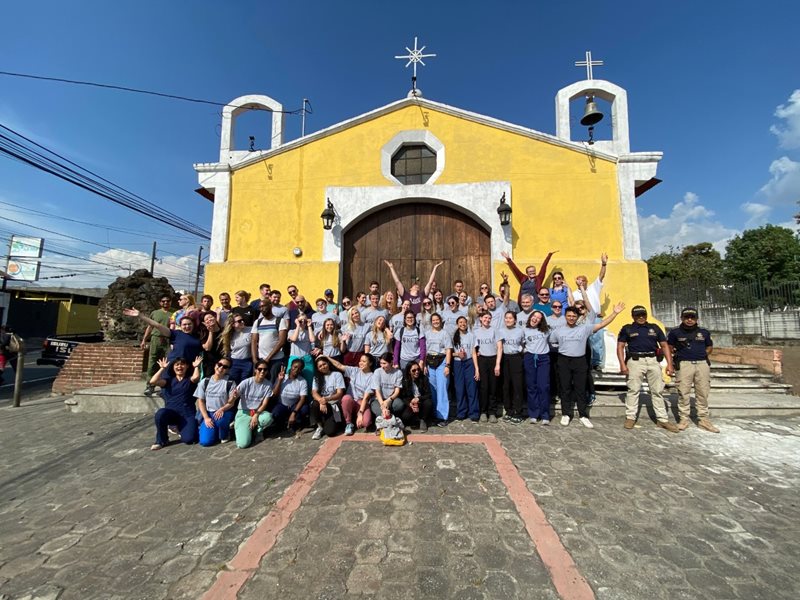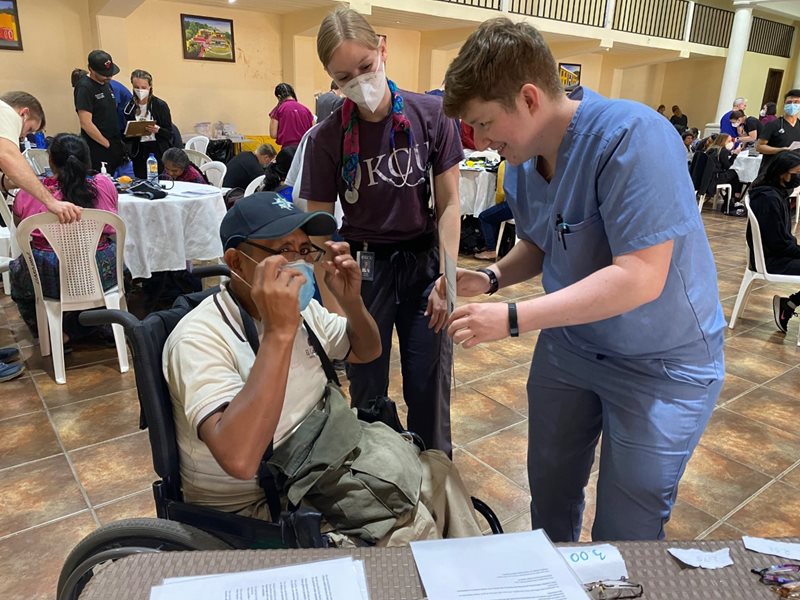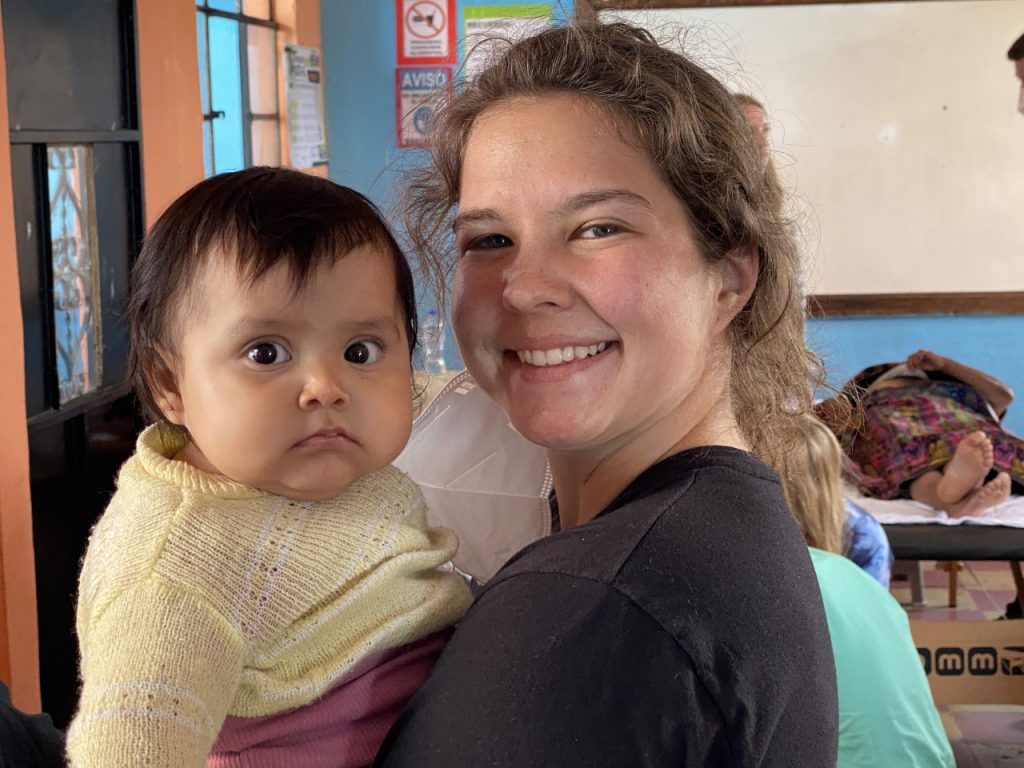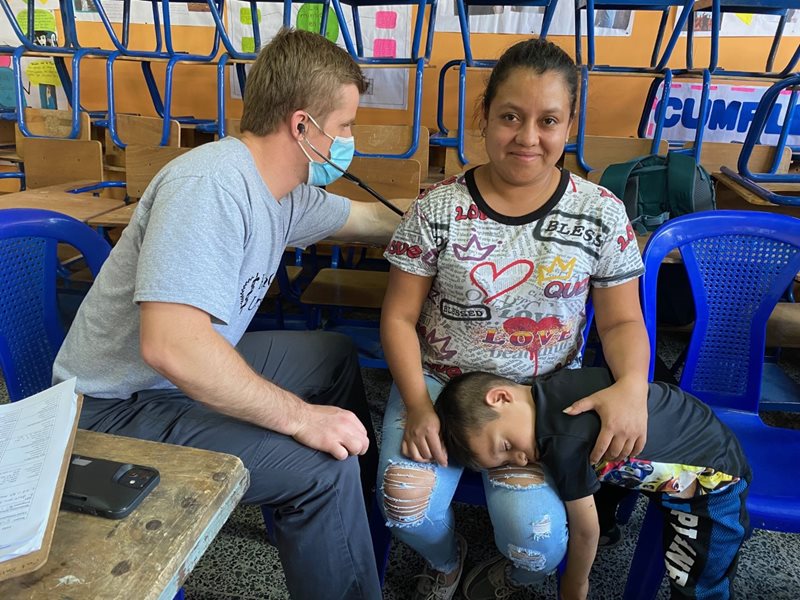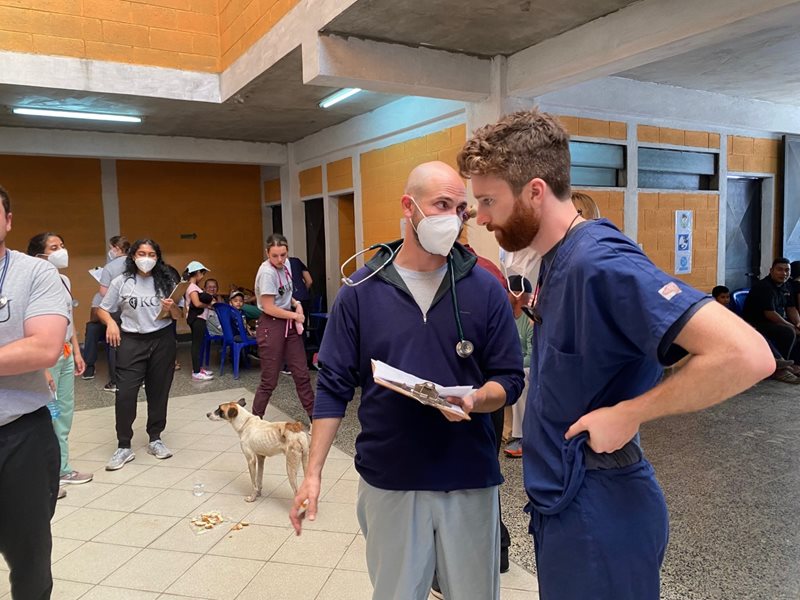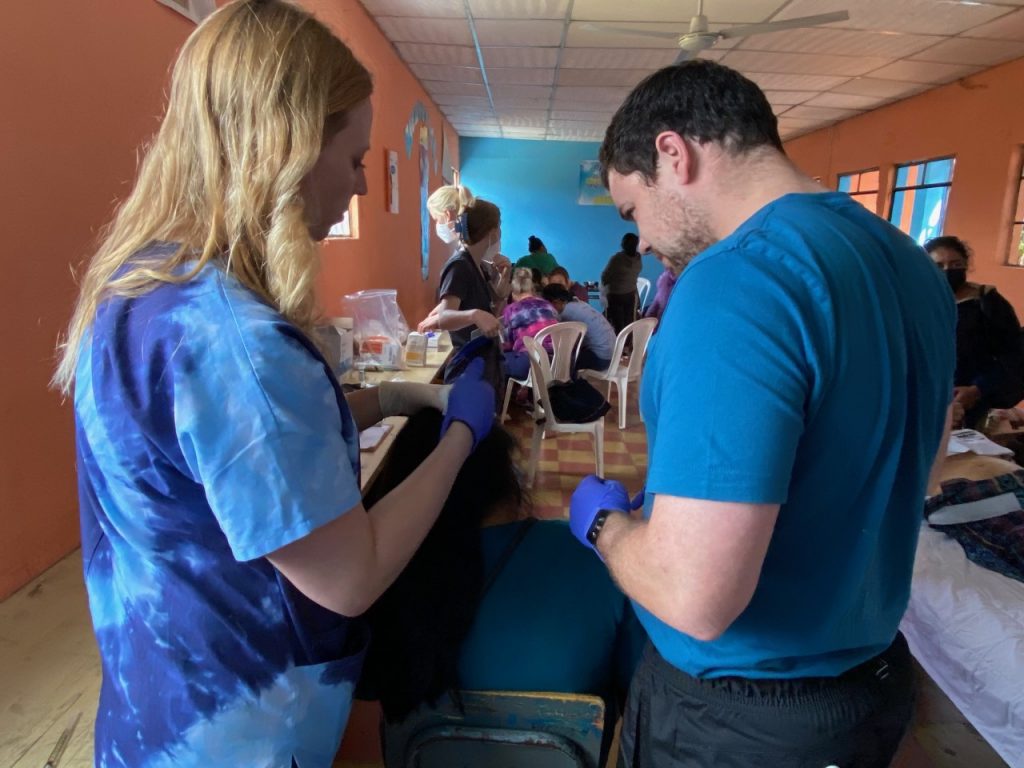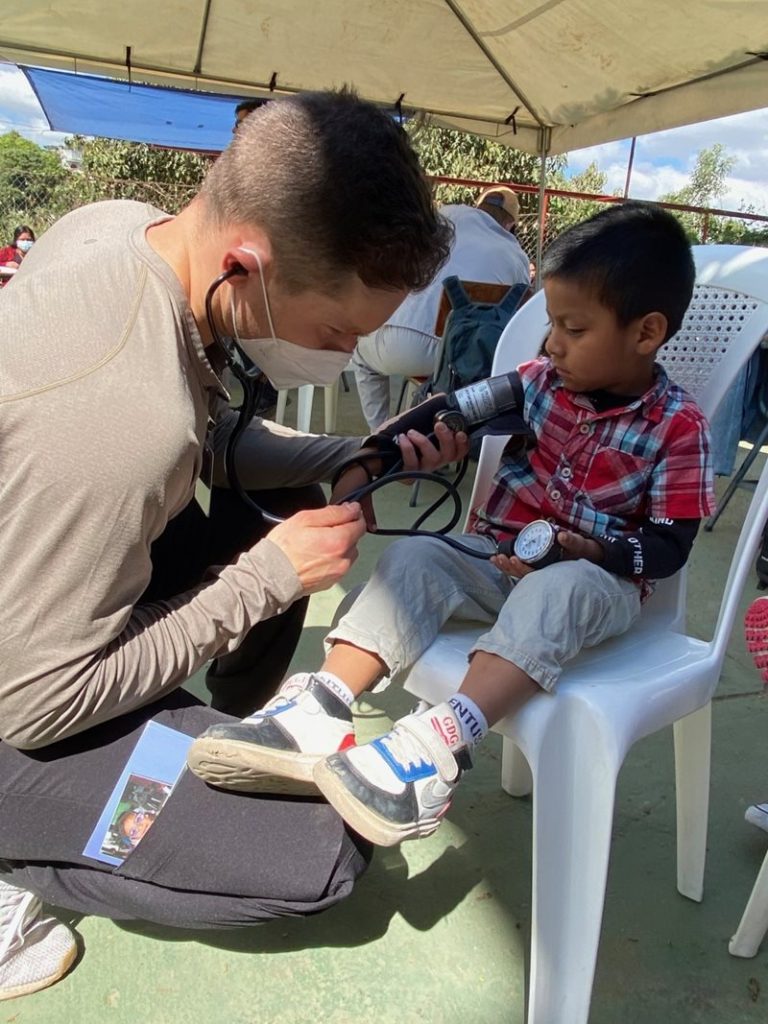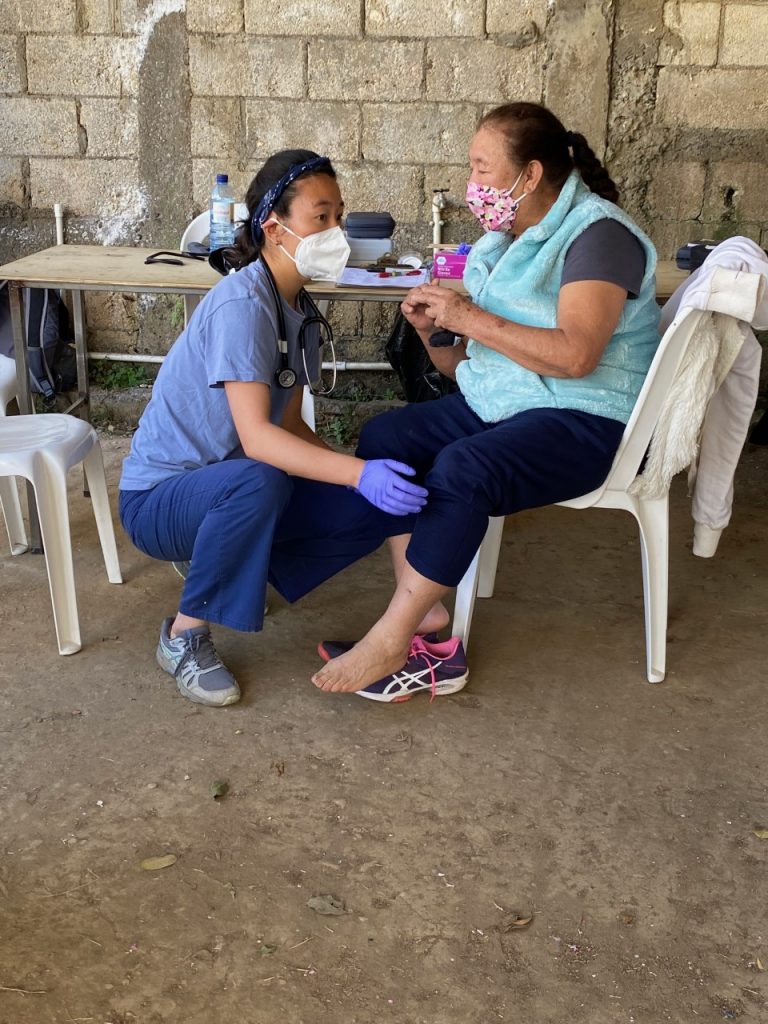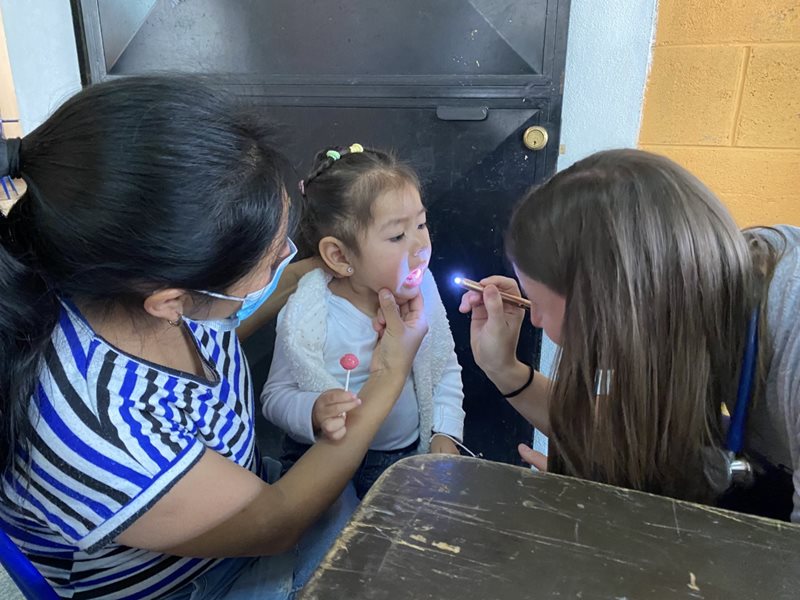KCU Global Health combines clinical skills and compassion
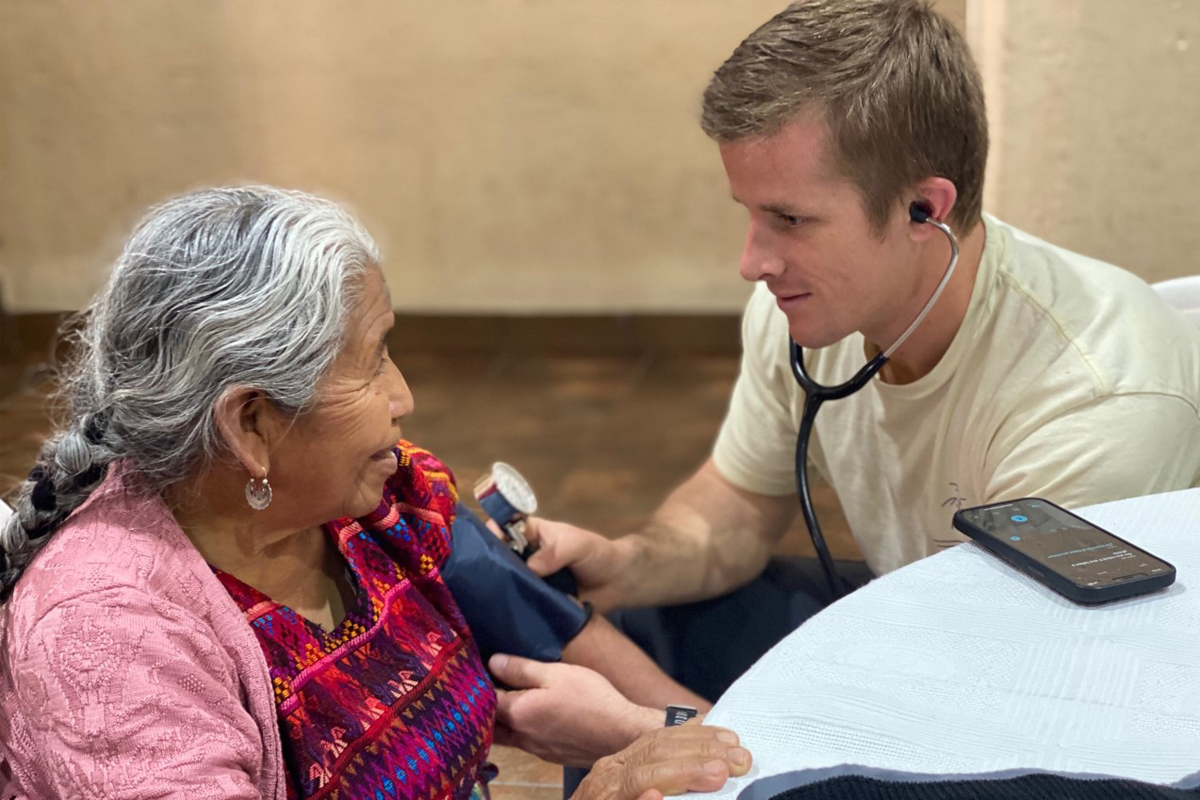
When Kansas City University (KCU) student doctors entered a makeshift clinic in the aldeas of Guatemala, they were greeted with a standing ovation. In this community, comprised of all ages from newborn babies to elderly abuelas, access to medical care is something to applaud.
“As soon as we bring one person to a station, another takes their place,” said Haley Lange, a third- year osteopathic medical student. “As they are being seen by doctors, people just keep coming and coming and they are super-excited. And I am excited to be here.”
Lange joined 41 osteopathic medical students from KCU’s Kansas City and Joplin campuses who were accepted to the month-long clerkship, which is two-and-a-half weeks in Guatemala, in February of 2023 as part of KCU’s Global Health program.
Many of the nearly 2,000 patients seen over the course of the trip have not seen a doctor in years. Some adults have not been to a doctor at all.
“I have learned there is a big need for medical personnel and education in Guatemala,” said Alexandra Millhuff, a fourth-year osteopathic medical student and KCU Global Health Outreach: Guatemala Student Leader. “We have to consider all of the social determinants and all of the practical considerations patients have. It’s now something I keep at the forefront of my mind.”
Students work for months preparing for global health trips. They practice joint injections on high-tech simulators, train on ultrasound equipment, hone lab skills and sort medicines. Additionally, they learn about Mayan culture and study Spanish so they can communicate better with Guatemalan patients.
Each morning of the trip, students load two dozen heavy trunks full of meds and equipment onto the roof of school busses, then travel to villages that are sometimes hours away. At the end of the long day, the tired team returns the trunks back on the buses and as soon as they arrive at their hotel, they inventory and replenish supplies for the next morning.
“Can you feel this?” said third-year Student Doctor Tafadzwa Amani, as she held a diagnostic tuning fork to the feet of a man as she checked him for neuropathy.
In the clinic, the student doctors receive a steady stream of patients with a wide variety of health needs. Under the supervision of KCU faculty and in consultation with volunteer alumni, they diagnose illnesses such as diabetes, gall stones, infections and parasites. They sometimes work outside in the hot sun, in the midst of children playing with a few dogs stopping by, hopeful for a bite to eat.
Ian Tobal, a fourth-year osteopathic medicine student, removed a painful mole from the scalp of a young woman, with guidance from Kelly Reed, DO, a dermatologist/Mohs surgeon and KCU alumna (Dr. Reed participated in the outreach when she was a fourth-year student at KCU). “It was my first time to do that, and I was happy we could take care of that for her” Tobal said. “You never know how you are going to be able to help somebody.”
Gavaro, a 48-year-old man who needs a wheelchair to get around, arrived at one clinic hoping to get reading glasses. “We found the perfect pair of readers for him,” said fourth-year student Miranda Huebner. “He says it is life-changing.”
Ashley Piwkiewicz, a third-year student who is thinking about a career combination of family and sports medicine encountered a frightened 2-year-old girl who did not want to be examined. Piwkiewicz broke
through the child’s reserve with the universal language of a lollipop. After that, a stethoscope checking the child’s heart was no longer a problem.
“Coming here makes me want to reach out to see how much more I can do in terms of global health,” said Piwkiewicz. “And I think about how I can keep on breaking barriers in getting access to health care at home, not just for the people who have money and access.”
KCU faculty members Gautam Desai, DO (Global Health Director), and Ken Stewart, DO, believe global health trips like this help students make valuable progress in terms of clinical skills and identifying symptoms of diseases that are not common in the United States. Also important, encouraging future physicians to remember that medicine is more than diagnostic tests and devices, but first and foremost about engaging with people.
“It is rewarding to see students get out and practice medicine this way,” said Stewart. “We are planting a seed early in their training that gives them the desire to give back and help the underserved, here in Guatemala and in communities who will need them back home.”

